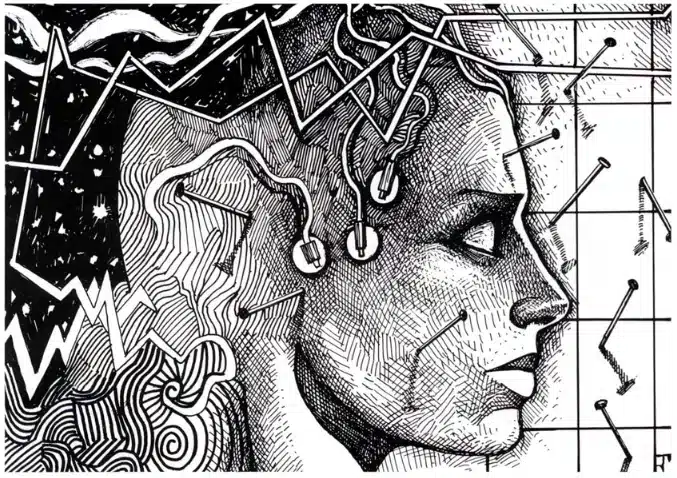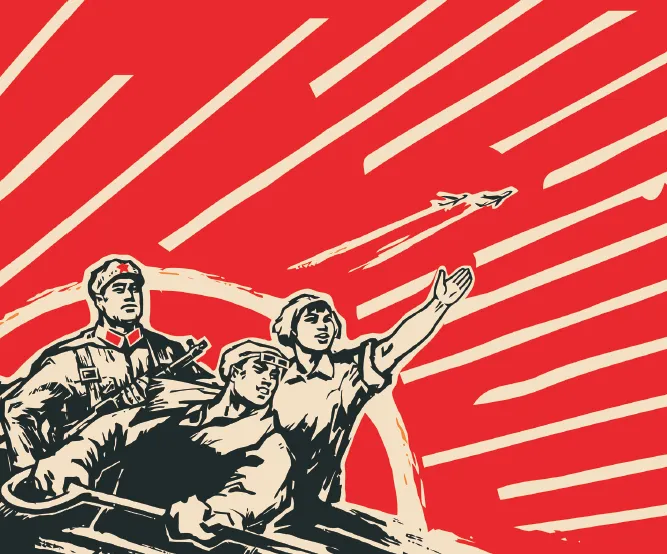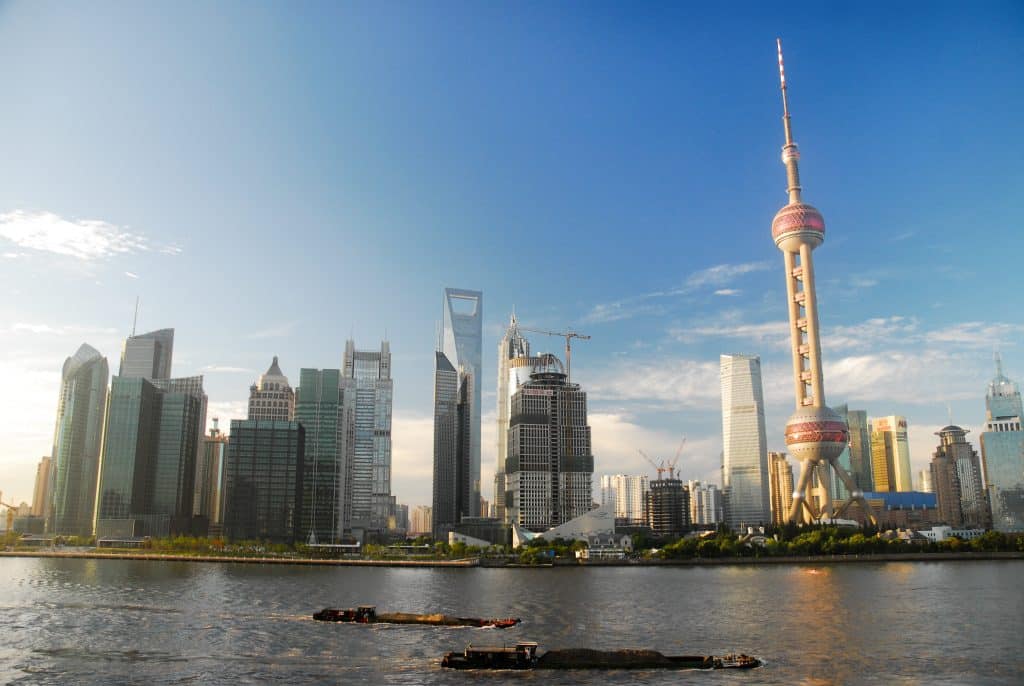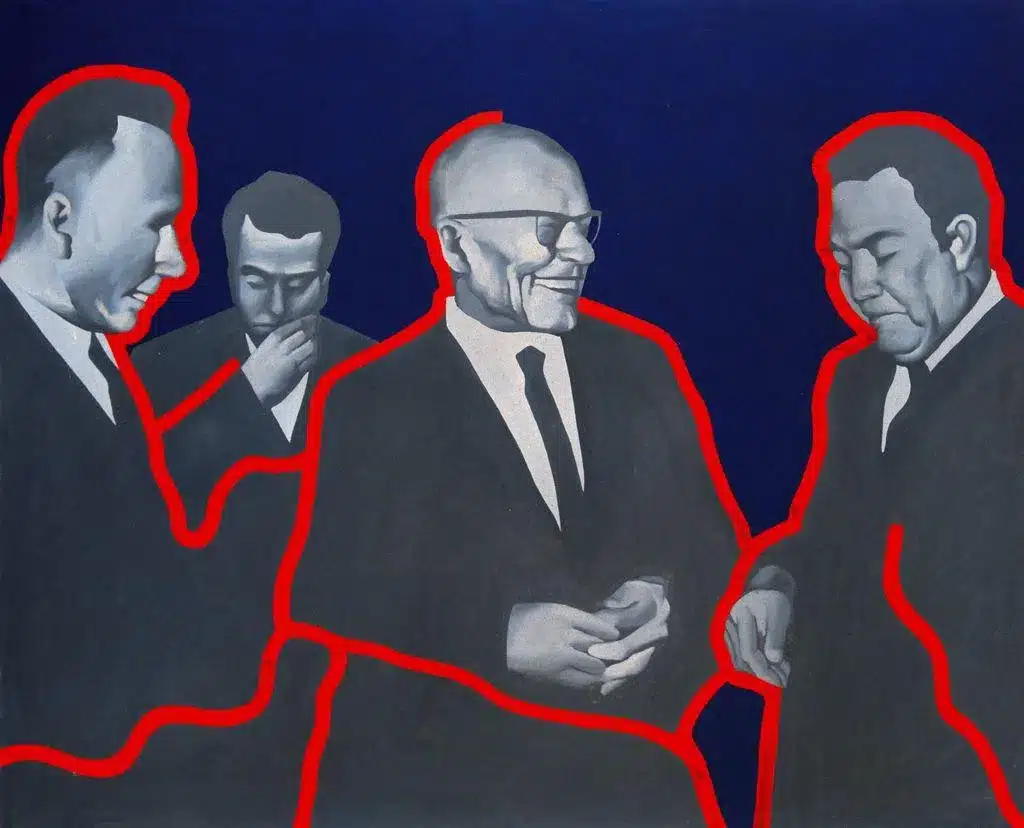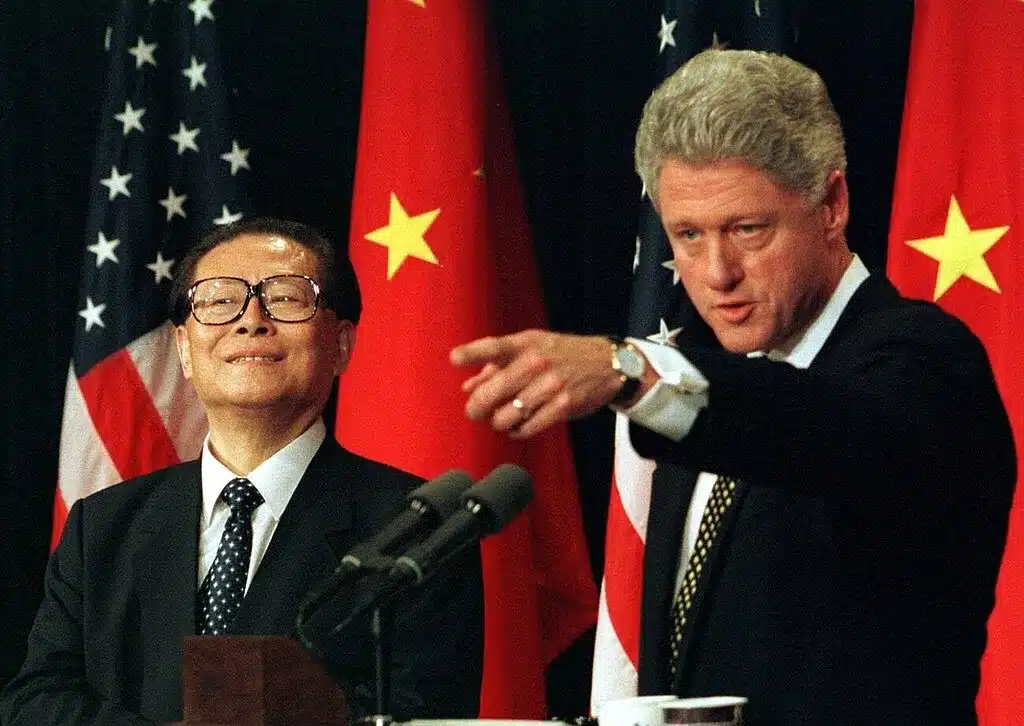Breaking Down Hu Xijin’s Challenge to Li Guangman’s ‘dazibao’
Image Credit: Harvard-Yenching Library.
On August 29, 2021, a blog entitled “Everyone can feel a critical change is taking place” was republished across Chinese state-owned media outlets, including the People’s Daily, New China News Agency, the People’s Liberation Army Daily, Guangming Daily and CGTN. The author of the blog is Li Guangman, a retired newspaper editor and active online blogger who is largely unknown outside of ultra-leftist circles in China. Two days later, Hu Xijin, chief editor of the Global Times and a much better-known leftist, wrote a blog challenging Li Guangman’s central thesis.
Hu declares that Li Guangman not only misjudges recent events taking place in China but is also trying to misguide the Chinese people into a revolution that will ruin the order brought about by China’s reform and opening up and the consensus of the 18th CCP National Congress. Interestingly, Hu’s blog post was not recycled by official media outlets, but it was not censored either (however, there was a brief period where it could not be shared on social media). Hu is not alone. Other shocked Chinese commentators have compared Li’s blog to the first dazibao that sowed the seeds of the Cultural Revolution.
Dazibao and the Cultural Revolution
On May 25, 1966, a few professors and administrators from the Department of Philosophy at Peking University hung a dazibao 大字报, a big-character poster, declaring that the management of the university had been overtaken by capitalist roaders. On June 1, Chairman Mao Zedong ordered the Central Broadcasting Station to read the dazibao over radio, which was a key trigger for the Cultural Revolution. Kang Sheng, one of Mao Zedong’s top lieutenants, also went to Peking University’ campus to declare this dazibao as the “Declaration of Beijing Commune in the 20th Century.”
Other Chinese leaders at the top of the Central Committee of the Chinese Communist Party (CCP), however, did not endorse the message behind the poster, believing that it would throw the country into chaos. On August 5, a frustrated Mao wrote his own dazibao on the margin of a newspaper he was reading. It was titled “Bombard the Headquarters—My Dazibao” and described the Peking University dazibao as the first Marxist dazibao. The People’s Daily ran Mao’s dazibao alongside the Peking University dazibao on the same day.
Mao’s dazibao clarified the message in his May 16th Notification: there were capitalist roaders within the headquarters of the CCP Central Committee headed by Liu Shaoqi, and they were committing treason by taking China down the road of capitalism as opposed to socialism. In response, Mao encouraged opposition to rise up and overthrow Liu’s bourgeois influence and his ‘running dogs’ like Deng Xiaoping. These events triggered the Great Proletarian Cultural Revolution, which brought China to a complete economic and cultural standstill that did not end until Mao passed away in September 1976.
Li Guangman Assessment of China’s Critical Changes
In his blog post, Li Guangman’s argument that a revolution is currently taking place in China is premised upon the following evidence:
1) the government has realized China’s entertainment circle is rotten to the core, the stars stink, and they should held accountable for their misbehavior, speculation, and tax evasion;
2) Celebrities with pro-American and pro-Japanese sentiments, such as Zhao Wei, Zhang Zhehan, and Gao Xiaosong, are being publicly shamed and cracked down upon, such as being removed from online platforms;
3) the CCP ran a big campaign to celebrate its first centennial and continues to call upon its members to not forget its original pledge (不忘初心);
4) the central government is taking aggressive actions to regulate private industry (such as the gaming industry, including Tecent), fight monopolies (Meituan), and stop private companies from holding IPOs overseas (Ants & Didi);
5) and, it is now looking into the feasibility of a third distribution of wealth with a view towards common prosperity (共同富裕).
Li writes, “All these tell us critical changes are taking place in China and these changes are economic, financial, cultural and political. In other words, this is a significant revolution, a return from the capitalist camp to the people’s camp, a pivot from the capital-focused center to the people-focused center. Therefore, it is a political transformation and people are the engine of this transformation. All those forces that attempt to stop this transformation will be abandoned.” In other words, the events taking place are about a return to the initial roots of the CPP: a return to the people and a return to the essence of socialism.
Another important dimension of Li’s blog is that China is in the middle of an epic rivalry with the United States. He argues that Washington’s China policy includes military threats, economic decoupling, and diplomatic isolation. Furthermore, he argues the US has launched a biological war, cyberwar, public opinion war, and space war against China, and seeks to foment a Color Revolution through a Fifth Column inside China. At this critical juncture, he argues that, to allow big capital to control China’s finance, to permit U.S. to deploy a ‘nipple’ strategy (using entertainment to poison and numb young people), and to have China’s youth lose vigor and fighting spirit is tantamount to repeating the tragedy of the Soviet Union.
What is Hu Xijin’s dissent?
Importantly, Hu Xijin does not dispute the facts listed by Li Guangman. What he strongly disagrees with, however, is what these events mean. To Hu, recent actions by the Chinese government and CCP are policies designed to regulate the market, to stop capital from barbaric growth, and to restore social justice and equality. In other words, the goal of these policies is about improving effective governance and gradual social progress— they have nothing to do with a seismic revolution.
Hu’s central argument is that China is politically united with its existing governance mechanisms, which he writes are orderly and efficient. This is, as Hu argues, the very reason that China could sustain a massive trade war and a frontal assault from the US. This is also the very reason that China has successfully contained COVID-19, which has generated so many problems for Western nations. Hu asks why a successful country like China needs to mobilize for a “revolution”? Who will be the targets of this “revolution”? China has undergone and is still undergoing transformation, even critical transformation, because reform is about transformation.
Hu continues in his blog that he works for the CCP and has daily public and private interactions with government officials. He writes that he has never seen or heard anything remotely connected to a beginning of a revolution to usher in a new order and a political campaign designed to correct fundamental flaws in the Chinese system of governance. Furthermore, Hu writes that Li’s blog describes changes in China as revolutionary “as if China is going to bid farewell to the era of reform and opening up and to go for an overthrow of the current order.” This is deeply misleading, seriously erroneous, and cynically populist. This kind of rhetoric has to be stopped.
What does the Li-Hu debate signify?
In both its message and propagation by state media networks, Li Guangman’s blog can be compared to the first dazibao that was posted to a Peking University wall in the early summer of 1966. What we do not know is who is behind the effort to amplify Li’s voice? What is even more intriguing are the circumstances of Hu Xijin’s daring critique of Li Guangman. Hu is an insider with strong knowledge of how the Chinese government approaches propaganda. Either his own conscience has dictated his behavior, or he was encouraged by someone inside the government to challenge Li Guangman— perhaps someone wants him to speak up and test the limitations of acceptable discourse before they speak up themselves? Or, perhaps, insiders want to test the waters of public opinion before another government decision is made?
There is one thing for certain: this debate indicates there is raging debate inside the CCP on the merits of reform and opening up, on where China is today in terms of social and political stability, and about what kind of nation China wants to become.
In terms of U.S.-China relations, the downturn is giving Li Guangman and the like fodder for their diatribe. There are even scholars in China who warn this is Washington’s strategy— that it is using the downturn in US-China relations to break Chinese political unity, as mentioned by Hu, and achieve its goal of containing China once and for all. In any case, those in China who want to see another revolution and overthrow what the nation has accomplished are either ignorant of what the Chinese people truly want or are so blinded by their own ambition that they disregard the pulse of the Chinese people.
Hu Xijin is certainly aware of the huge stakes in this debate. In today’s China, it takes courage to speak out. For this, I commend him.


